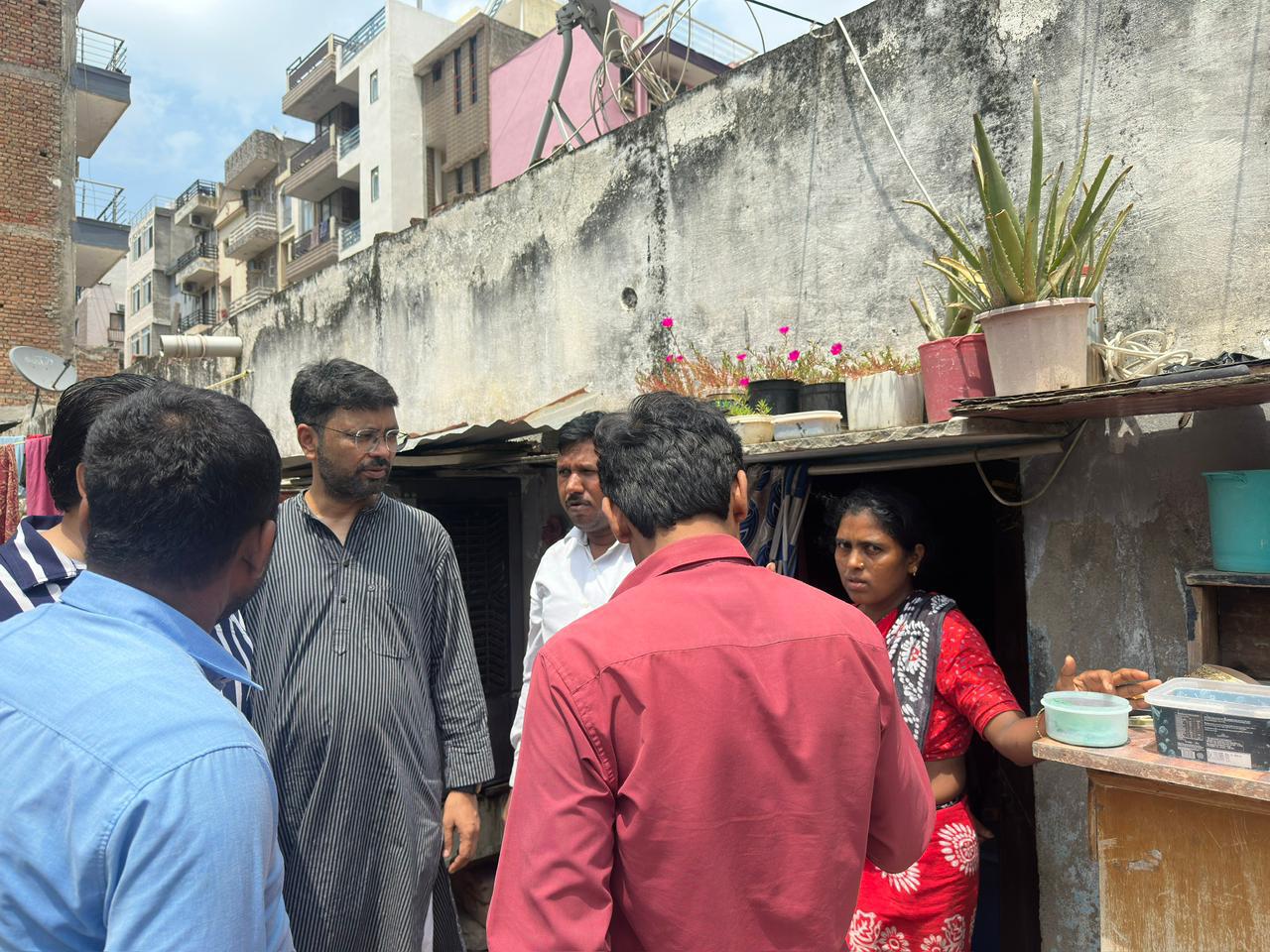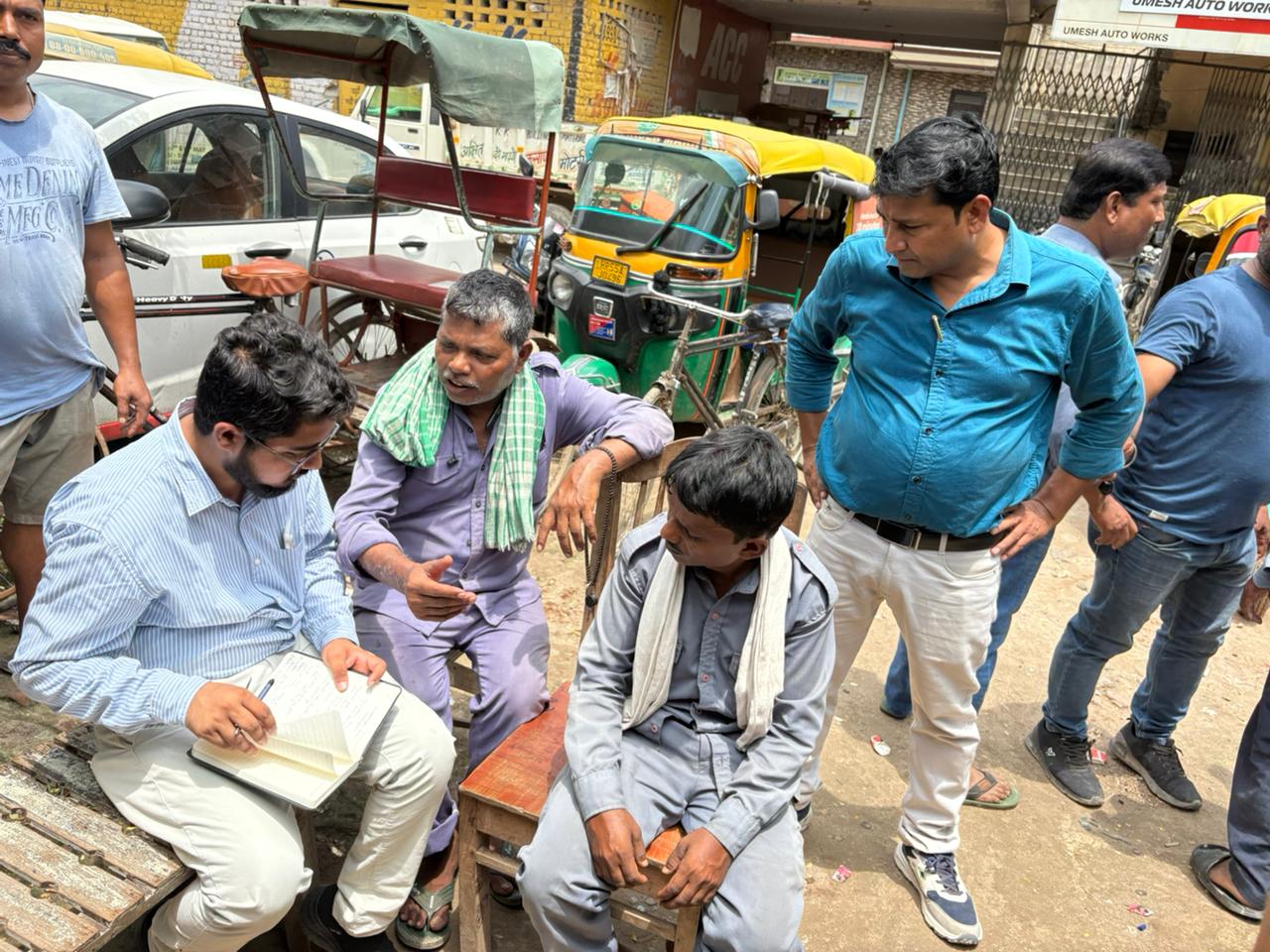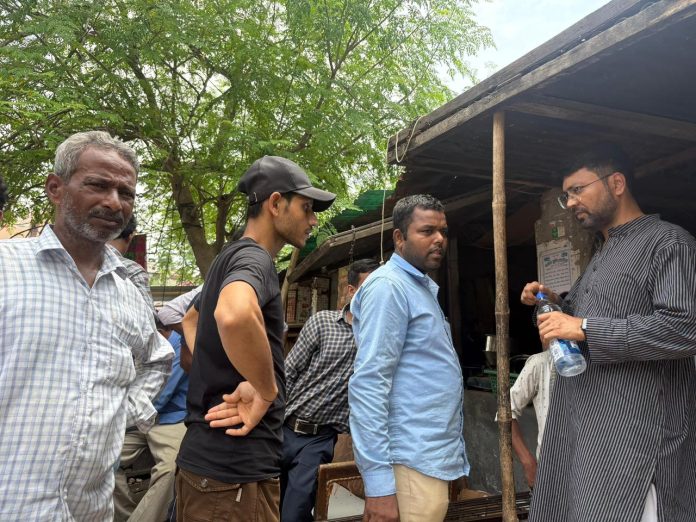Gurugram: A grave humanitarian crisis is unfolding in Gurugram, Haryana, where thousands of Bengali-origin Muslim migrant workers have been forced to flee en masse, following widespread allegations of illegal detention, custodial abuse, and communal profiling at the hands of the Haryana Police. Media sources reported that this drive led to the illegal detention of over 200 people, mostly Bengali-origin Muslim migrant workers, over the past week.
 According to sources, those detained have been held in temporary centres at community halls in Badshahpur, Sector 10A, Sector 40, and Sector 1 in Manesar. Families of the detained report being kept in the dark, with no information about charges, locations, or legal procedures.
According to sources, those detained have been held in temporary centres at community halls in Badshahpur, Sector 10A, Sector 40, and Sector 1 in Manesar. Families of the detained report being kept in the dark, with no information about charges, locations, or legal procedures.
These migrant workers – hailing from various districts of West Bengal – have for decades been integral to Gurugram’s urban ecosystem. Employed in a range of sectors including construction, domestic work, factory labour, cleaning, rag picking, and as drivers, they have contributed significantly to the economic and infrastructural development of the city.
 Despite being legitimate Indian citizens, many of these Bengali-speaking Muslims are now being arbitrarily labelled as “illegal Bangladeshi immigrants.” Activists argue this is a politically driven attempt to criminalise and displace a poor, working-class community under the guise of immigration enforcement.
Despite being legitimate Indian citizens, many of these Bengali-speaking Muslims are now being arbitrarily labelled as “illegal Bangladeshi immigrants.” Activists argue this is a politically driven attempt to criminalise and displace a poor, working-class community under the guise of immigration enforcement.
In yet another deeply troubling account of the ongoing crackdown on Bengali-origin Muslim migrant workers in Gurugram, a survivor has come forward detailing the illegal abduction, three-day detention, and communal abuse he and at least a dozen others endured at the hands of Gurugram police and its agencies.
The victim, a daily-wage labourer who has lived in Gurugram for years in a rented accommodation, was picked up along with 12 others without warning, documentation, or any stated reason from Shakkarpur village. The group was shuffled between multiple police posts and stations, without being formally arrested or charged. Eventually, they were confined in a community centre in Sector 31, which, the victim says, was being used as detention site.
“They took our mobile phones, switched them off, and didn’t allow us to speak to our families,” the worker said, visibly shaken.
A local leader told us, “There was no arrest memo, no explanation, no information and grounds of arrest. Just fear.”
“We have done nothing wrong,” said the survivor. “We only came here to work. But now we are being hunted for our language and our religion.”
According to his account, neither family members were informed, nor were any formal arrest procedures followed. The detainees who were all of Bengali Muslim origin were kept incommunicado and subjected to verbal abuse, communal slurs, and physical intimidation.
“When we asked for food, one officer said: ‘Tum log roza nahi rakhte ho, tumhe kya khaane ki padi hai?’ (You people don’t fast – why do you even care about food?),” he recalled. “It felt like they were punishing us just for being Muslims.”
The food provided was stale, inedible in some cases, and detainees allege, “If someone spoke up or asked for help, they were dragged aside and beaten,” the survivor said. “We were treated worse than hardcore criminals, and nobody came for help.”
According to the fact-finding team, this is not an isolated incident. The use of unmarked vehicles, plainclothes officers, intimidation, and detaining in holding centres illegally points to a systemic pattern of abuse. What began as sporadic targeting has evolved into a full-blown communal and linguistic witch-hunt, under the false narrative of identifying “illegal Bangladeshi immigrants.”
The fact-finding team, comprising activists Nadeem Khan, Laiq Ahmed Khan, and advocate M Huzaifa, has documented multiple such testimonies over recent days. Their findings describe an atmosphere of terror in migrant-dominated areas, with settlements rapidly emptying out as people flee to West Bengal fearing arrest, assault, or worse.
“People who have been living and working here for 20-30 years also with voter IDs, Aadhaar cards, ration cards are now being hunted, harassed, and branded as outsiders,” said activist Nadeem Khan. “This is not law enforcement. This is communal profiling, plain and simple.”
“The state is acting outside the law, weaponizing identity, and violating every safeguard meant to protect citizens,” said Laiq Ahmed Khan. “Entire localities are empty. This is ethnic displacement happening in real-time.”
“This isn’t random – this is a coordinated assault on the dignity and security of a linguistic and religious minority,” said lawyer M Huzaifa, who has begun initiating legal aid efforts for affected families. “The city they helped build is now treating them like criminals who are now being made feel stateless in their own country,” he said.
The Association for Protection of Civil Rights (APCR) has demanded an immediate independent judicial inquiry into the illegal detentions, immediate release or tracing of missing persons, accountability and prosecution of police and other officials involved, compensation and rehabilitation of affected families and public disclosure of MHA guidelines under which this punitive drive is being undertaken.




